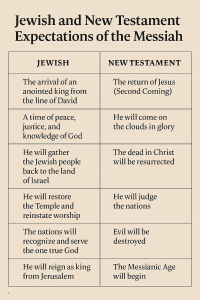Making continual corrections in our life is the process of repentance, and it takes a lifetime.
Repentance isn’t about being perfect. It is not all or nothing; it’s about progress—aligning your life with God’s instructions to live with greater purpose and joy.
Repentance leads you to know God better and helps you to understand the Kingdom of God. Jesus made it possible for us to repent because of His sacrifice, but we also have a responsibility to physically prepare ourselves, learn His ways, apply what we learn, and continue to make corrections our entire life.
Repentance is much more than confessing your sin and getting to heaven.
The process of repentance leads you to know God better and understanding His Kingdom and His ways. Jesus made it possible for us to repent because of His sacrifice but we also have a responsibility to physically prepare ourselves, learn His ways, apply what we learn, and continue to make correction in our life. Your repentance even affects your children and your family. Read more on “A Message of Hope for Parents with Concern for Their Children“.
The primary goal of repentance is to know God and produce the Fruit of the Spirit.
John 17:3: Now this is eternal life: that they know you, the only true God, and Jesus Christ, whom you have sent.
Galatians 5:22-26: “But the fruit of the Spirit is love, joy, peace, forbearance, kindness, goodness, faithfulness, gentleness and self-control. Against such things there is no law. Those who belong to Christ Jesus have crucified the flesh with its passions and desires. Since we live by the Spirit, let us keep in step with the Spirit. Let us not become conceited, provoking and envying each other.
What does it mean to accept Jesus?
The short answer is, you are accepting to learn about the covenant of God, and you commit to make correction in your life to protect it. Read more about what it means to accept Jesus. It is much easier to prepare for the Kingdom of God when you understand the job of the Messiah and His role in the Kingdom. This Podcast gives a great introduction into the role of Jesus which will help you understand your role.
Through repentance a person can transform evil miraculously into good.
The purpose of repentance is to make continual correction in your life by applying what you learn from seeking God, in order to prepare for the Kingdom of God. As Jesus said in Mark 4:20, “some seed sown goes on good soil, and they hear the word, accept it, and produce a crop—some thirty, some sixty, some a hundred times what was sown.” Take a few moments each day to cultivate the seed that is in you.
Practical Advice about Repentance
Making continual corrections in our life is the process of repentance, and it takes a lifetime.
Below are links to 30 days of practical advice on how to repent and make correction in your life. Through this journey you will learn more about the Kingdom of God.

Day 8 – How Much Effort Do You Need to Put Into Repentance
Day 9 – Writing Your Story In the Book of Life
Day 11 – Living a Righteous Life is About Refining Your Thoughts and Behavior
Day 12 – Sin Is Crouching at Your Door
Day 13 – Connecting to God Through A Mitzvah (Commandment)
Day 15 – Are You Preparing (Repenting) for the Kingdom of God
Day 16 – A Bad, Good, or Better Resurrection – The Choice is Up to You
Day 17 – Understanding How Evil Can Be Good
Day 18 – Barriers That Prevent Repentance
Day 19 – An Annual Review of Your Repentance Driven Life (Day of Atonement)
Day 20 – How to Choose Life over Death
Day 21 – What Is True Regret For Sin
Day 22 – How Does Confession of Sin Heal Your Soul
Day 23 – Jesus Will be King of the World
Day 24 – Where Are You in the Book of Life
Day 25 – Prayer Is Music To God’s Ears
Day 26 – Hasten the Day of the Lord
Day 27 – Living in Rhythm with Jesus (Celebrating the Appointed Feasts)
Day 30 – The True Definition of What Repentance Is and Where We Go from Here
Our Hope for You on this Repentance Journey
Every journey begins with a step of faith. Take action! Join thousands of others in our 30-day Journey of Repentance. While you are here, take a deep dive into the history of Colonial Christianity and re-imagine the possibilities of what it might mean to follow Christ.









































